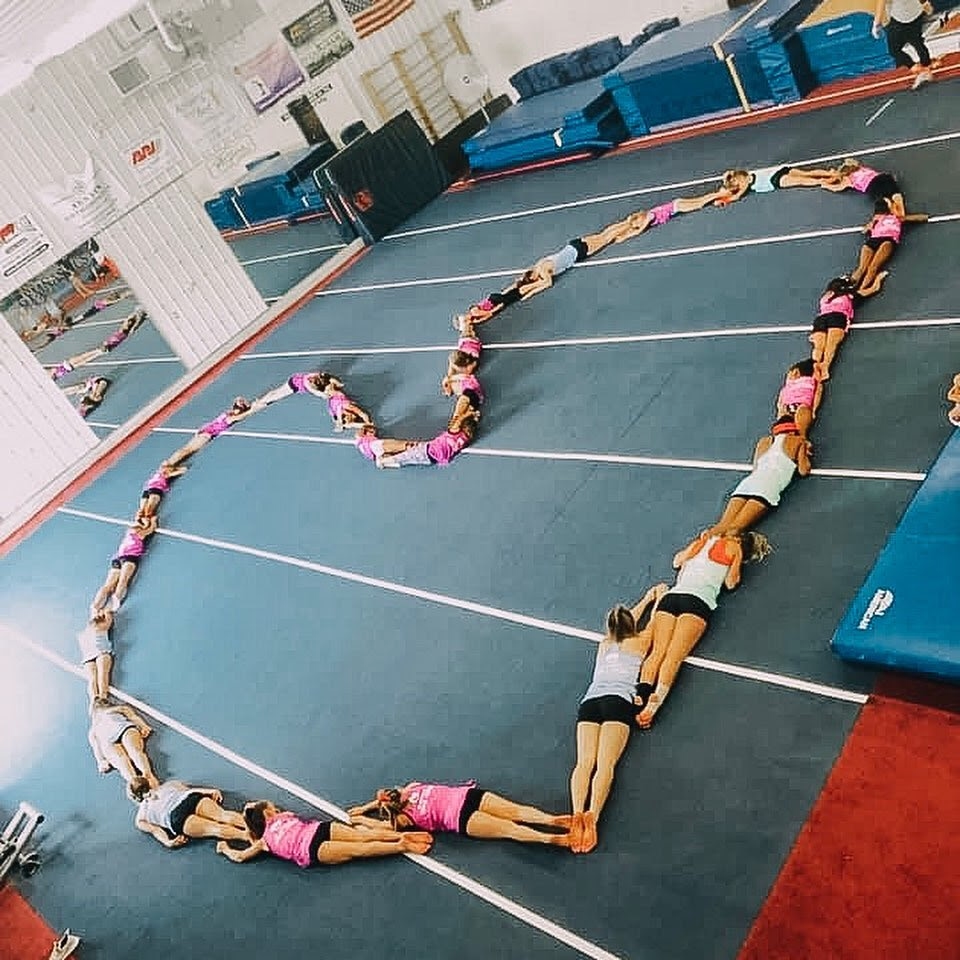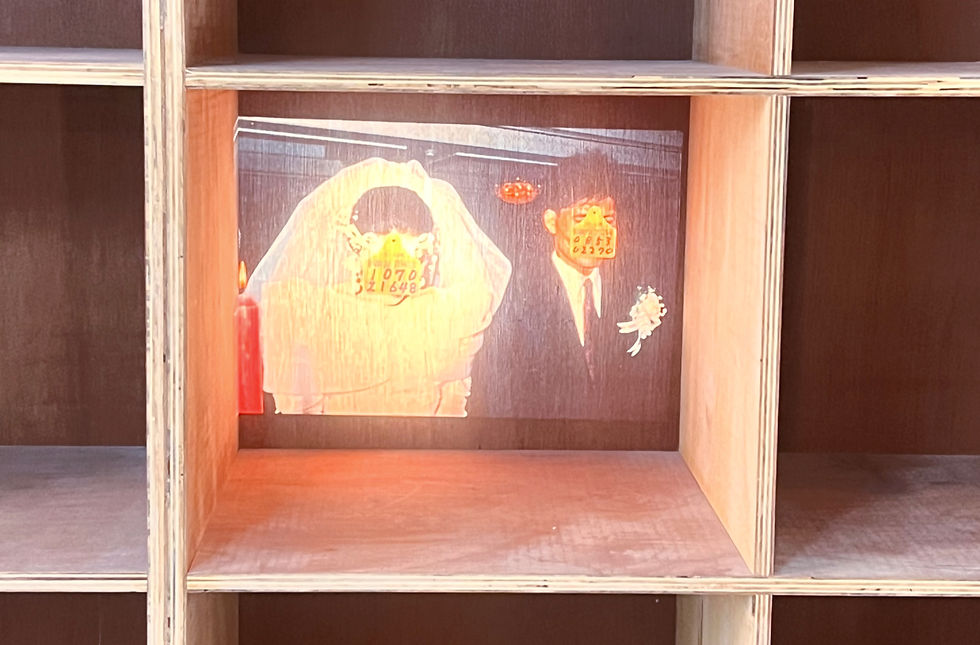Beauty for Ashes
- Destiny

- Sep 22, 2025
- 6 min read

For a long time I wanted nothing to do with marriage. I’ve mentioned this before, but what I haven’t said is why. There were reasons that shaped my view, reasons that made me think marriage wasn’t for me.
When I was a child, I was raped. That pain didn’t just scar me. It rewired me. It made me feel unsafe around older men. It made me avoid any kind of relationship that required vulnerability. But at the same time, it also created this hunger to be wanted by men in ways that weren’t healthy.
I wanted to feel pretty.
Desired.
Chosen.
But my reasons were rooted in shame. I felt like I was less than the filth beneath the hooves of farm animals, the kind of dirt trampled on and covered with waste. That’s where my worth felt like it belonged. My identity wasn’t in Christ. It was in whether or not someone else would notice me.
Healing didn’t come easily. It wasn’t something I fixed overnight. Counseling didn’t work for me at first. I hated it. I don’t always know my emotions. I can feel them lingering in the background, but they don’t surface unless someone really presses with the right questions. Therapists weren’t doing that, so I bottled everything up.
I had this motto: “Suck it up, buttercup.” Cute phrase. Terrible coping mechanism.
When I was sixteen, I started praying a prayer that carried me for years. I told God, “If you use this pain to save just one person from hell, then it was worth it.” That didn’t take away the depression. It didn’t stop the suicidal thoughts. But it gave me perspective. I knew where I was going if I died. I knew God could carry me through the pain. And I knew there were people out there who didn’t have the hope I had. I wanted them to know life wasn’t the end of the story.
Still, I carried shame. Deep shame. I felt like less than human. At that point, only my parents, grandparents, and one uncle knew what had happened. Nobody else. For years I couldn’t bring myself to tell another soul.
By the time I was twenty, less than ten people knew. And still, little everyday moments would undo me. I remember being in the grocery store, just shopping like anyone else. But if I turned the corner and saw an older man down the aisle, my whole body would go rigid. My heart would pound in my chest, and before I knew it, I was gripping the handle of my cart and making a sharp turn in the opposite direction. Sometimes I’d abandon whatever I came for, just to avoid being near him.
That was my reality.
Then when I was twenty-two, something shifted. I went on a mission trip to work at a clinic. One afternoon I was asked to make a delivery. I assumed I’d be paired with someone from my team. Instead, they told me I’d be riding with a man in his seventies.
Alone.
Every nerve in me screamed no. The idea of sitting in a truck with him felt unbearable. But I also didn’t want to make a scene, so I climbed in, stiff as a board. My eyes stayed glued to the window. The silence was suffocating. Then he asked me a simple question about the weather. Something small. Ordinary. I gave a short answer. Then he asked about the mission team. Slowly, I found myself answering with more than one word. The ride didn’t turn into some deep conversation. f

But by the time we pulled up to our stop, I realized something. I had sat with an older man, talked with him, and survived. That may sound small, but for me, it was a breakthrough.
From there, I began serving more in ministry. Volunteering with the homeless. Spending time with people in group homes. Many of them carried stories like mine. And as I shared pieces of my testimony, people were shocked. They thought I had never faced real struggles. They assumed that’s why my faith was strong. I had to correct them. My faith wasn’t strong because life was easy. It was strong because I knew God was the only one who could carry me.
One woman, Jenny (a pseudonym), told me she couldn’t understand how I could be joyful after everything I’d been through. She had seen me cry. She had seen me angry. But she also saw hope in me. Real hope. And she wanted that. She gave her life to Christ. That moment was powerful for her, but it was also powerful for me. My prayer from when I was sixteen was answered right in front of my eyes. God had used my pain to bring someone else to Him.
But here’s the truth. Even then, I still hadn’t fully let God heal me.
Years later, before I moved overseas, I went through counseling again. This time it was different. It wasn’t just talking through events like facts on a page. It was prayer-focused. My counselor would have me picture a memory and then invite Jesus into it. We’d pause and ask Him, “Where were You? What were You feeling?”
At first, I hated it. I didn’t want to imagine God in those moments. I was furious with Him. I yelled. I wept. I told Him He could have stopped it. And then slowly, something changed. I started to see Him—not distant, not cold, but weeping with me. Angry at the sin. Broken for me. Holding me.
That changed everything. It took me 22 years from the first time I was raped to truly let God begin to heal my heart. Fifteen years of silence and shame before I allowed Him to be the one who could bring wholeness.
It wasn’t easy. In those sessions I screamed at God. I cried while imagining myself in His arms like a child. I told Him I was furious. But in the moments when I finally released it, when I finally stopped trying to carry the pain myself, something shifted. I wasn’t the same.
So what does this mean for marriage?
For years I believed my past disqualified me. I believed I was too broken for love. But more than that, I believed I could never be with a man romantically. I thought trust was impossible. I thought closeness was impossible. I thought marriage was not for me.
But here’s what God has shown me. Pain doesn’t disqualify you. Jesus redeems. Wholeness isn’t about never being hurt. It’s about letting Him into the hurt and allowing Him to breathe life into the places you thought were dead.

Marriage is not a reward for being perfect. It’s a picture of Christ’s love for us. And that means there is space for your story. There is space for your scars. There is space for you.
I don’t know the timeline God has for you. I don’t know when or how He will bring marriage into your life. But I do know this. Your worth is not dependent on whether or not you get married. Your healing isn’t dependent on whether or not a man chooses you. You are already chosen. Already loved. Already seen by the One who matters most.
But don’t believe the lie that your past makes you less worthy of marriage. God delights in restoration. He makes beauty from ashes. He takes broken stories and turns them into testimonies of grace.
I used to believe I was too damaged for love. I used to believe I would never be able to trust a man again. Today I believe God can write a story that is bigger than anything I imagined. If He can heal me after 22 years of silence, He can heal you. If He can give me joy that makes others want to know Him, He can do the same for you.
You are not disqualified. Not from love. Not from wholeness. Not from marriage.
Your story is still unfolding. And God isn’t finished yet.
And if you’ve ever felt what I felt—like you’re too scarred, too unworthy, too broken to ever be loved—I want you to know you are not alone. I’ve been there. God met me there. And He can meet you too, right in the middle of your pain. He has more for you than you think.



Comments